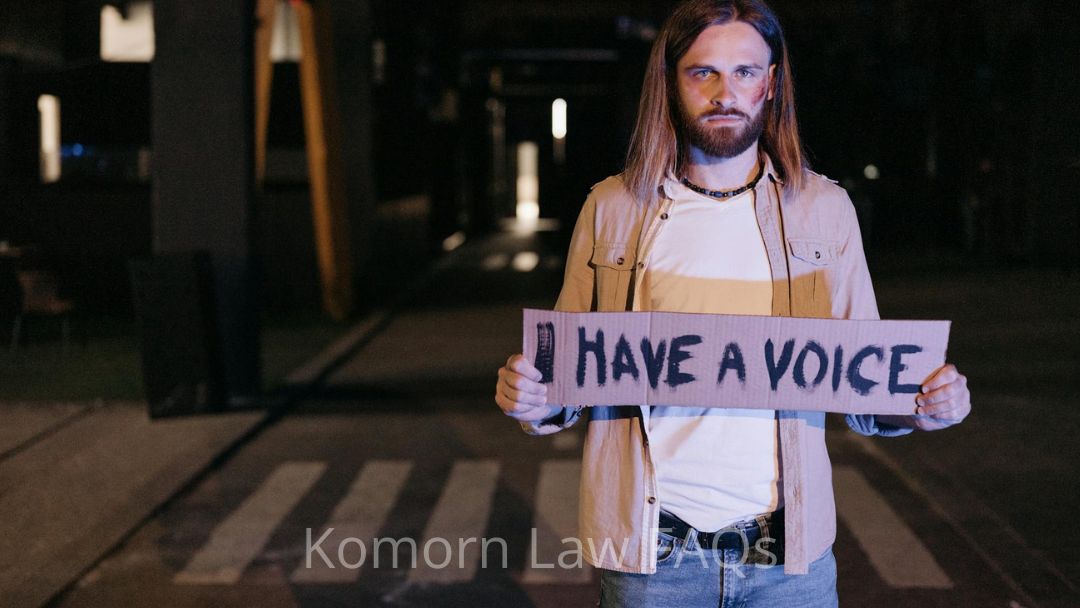Michigan Criminal Laws FAQs Theft CrimesAccording to Michigan State Law (Michigan Compiled Laws - MCL), Theft Crimes generally involve the unlawful taking of someone else's property with the intent to deprive them of it, either permanently or for a significant period....

$700 Million Settlement Against Johnson and Johnson – What’s Your Cut?
Attorney General Nessel Reaches $700 Million Settlement Against Johnson and Johnson
Your mom and your dad have been covering you with Johnson and Johnson powder since you were a baby. There was always a cloud of powder in the air as they slapped it on you.
It got all over your face and hands and you both carried it throughout the house. You could taste it because it got in your mouth from breathing it in. You’ve been using it all your life, you still have some in your closet. You still use it today.
What’s your cut of the $700 Million and why didn’t they ban it from use long ago?
Here is the news release from the government.
Attorney General Nessel Reaches $700 Million Settlement Against Johnson and Johnson
June 11, 2024
LANSING – Michigan Attorney General Dana Nessel and 42 other attorneys general reached a $700 million nationwide settlement to resolve allegations related to the marketing of Johnson & Johnson’s baby powder and body powder products that contained talc.
The consent judgment (PDF) filed in this lawsuit addresses allegations that Johnson & Johnson deceptively promoted and misled consumers in advertisements related to the safety and purity of some of its talc powder products. As part of the lawsuit, Johnson & Johnson has agreed to stop the manufacture and sale of its baby powder and body powder products that contain talc in the United States.
“Product safety should be a top priority for every company in every sector, but especially an historic, trusted brand selling baby care products,” said Nessel. “Misleading Michigan consumers will not be tolerated, no matter how large or well-known the corporate perpetrator. We will stand up for consumer safety in our state, and I’m appreciative for our many bipartisan partners on this litigation throughout the country.”
Johnson & Johnson sold such products for more than 100 years. After the coalition of states began investigating, the company stopped distributing and selling these products in the United States and more recently ended global sales. While this lawsuit targeted the deceptive marketing of these products, numerous other lawsuits filed by private plaintiffs in class actions raised allegations that talc causes serious health issues including mesothelioma and ovarian cancer.
Under the consent judgment, Johnson & Johnson:
- Has ceased and not resumed the manufacturing, marketing, promotion, sale, and distribution of all baby and body powder products and cosmetic powder products that contain talcum powder, including, but not limited to, Johnson’s Baby Powder and Johnson & Johnson’s Shower to Shower (“Covered Products”) in the United States.
- Shall permanently stop the manufacture of any Covered Products in the United States either directly, or indirectly through any third party.
- Shall permanently stop the marketing and promotion of any Covered Products in the United States either directly, or indirectly through any third party.
- Shall permanently stop the sale or distribution of any Covered Products in the United States either directly, or indirectly through any third party.
As part of the settlement, Michigan will receive $20,615,040.58. This settlement is pending judicial approval.
Michigan is joined on the multistate settlement by the attorneys general of Texas, Florida, and North Carolina, as well as Alabama, Alaska, Arizona, Arkansas, California, Colorado, Connecticut, Delaware, the District of Columbia, Georgia, Hawaii, Idaho, Illinois, Indiana, Iowa, Kansas, Kentucky, Maine, Maryland, Massachusetts, Minnesota, Montana, Nebraska, Nevada, New Hampshire, New Jersey, New York, North Dakota, Ohio, Oklahoma, Oregon, Rhode Island, South Dakota, Utah, Vermont, Virginia, Washington, West Virginia, and Wisconsin.

Criminal Law FAQs – Theft Crimes

Criminal Law FAQs – Domestic Violence
Michigan Criminal Laws FAQs Domestic ViolenceAccording to Michigan State Law, Domestic Violence is not a standalone criminal offense but rather a designation applied to certain crimes when the victim is a "spouse or former spouse, an individual with whom the person...
Read it Consent Judgement PDF
- Where does the money go?
- Are you eligible for some of that government windfall?
- How do you prove that you used the powder and the link to your disease?
- Got a lifetime of receipts?
- Got pictures of you using it daily?
Here are some possible answers at Forbes.com
The answer is millions of consumers will pay more for products and J&J will make it up in a year and probably another robbery just occured.
Other Articles
The 6th Amendment – Do You Know What It Is?
The 6th Amendment: is it still a thing?The 6th Amendment to the United States Constitution is a crucial pillar of the Bill of Rights, designed to ensure fair and just legal proceedings for individuals accused of crimes. Ratified on December 15, 1791, this amendment...
The US Supreme Court and Federal Gun Law Cases
The US Supreme Court and Federal Gun Law CasesChallenges to Federal Gun Laws the right of the people to keep and bear Arms, shall not be infringed Updated July 8, 2024 Ratified in 1791, the Second Amendment provides, “A well regulated Militia, being necessary to the...
Do Passengers in a Vehicle have 4th Amendment Rights?
Do Passengers have 4th Amendment Rights?Michigan Supreme Court Limits Police Ability to Search Passenger Property in CarsBackground Mead was a passenger in a car and had just met the driver, who offered him a ride. When the police stopped the vehicle and ordered both...
Do Students Have 4th Amendment Rights in Schools
Students and 4th Amendment RightsStudents are entitled to a right to be safe from unreasonable searches and seizures even within school premises, as ruled by the Supreme Court of the United States. However, these rights are somewhat limited for students, allowing...









